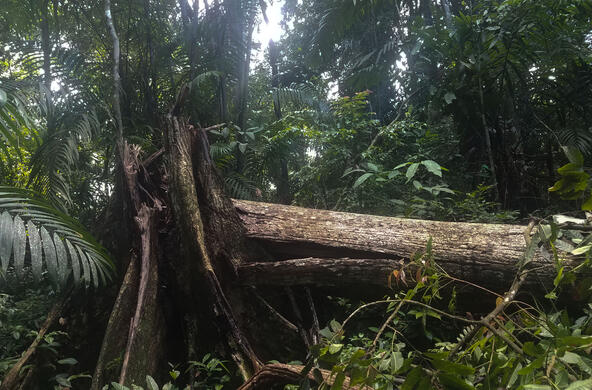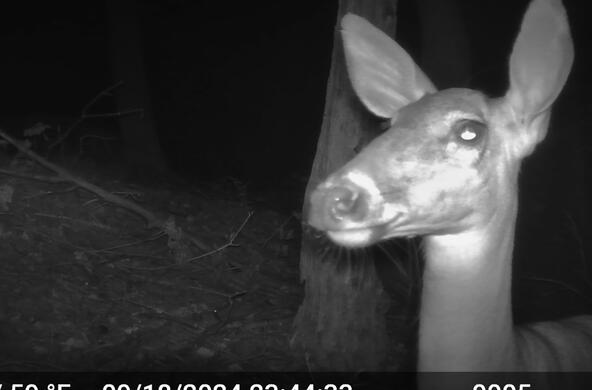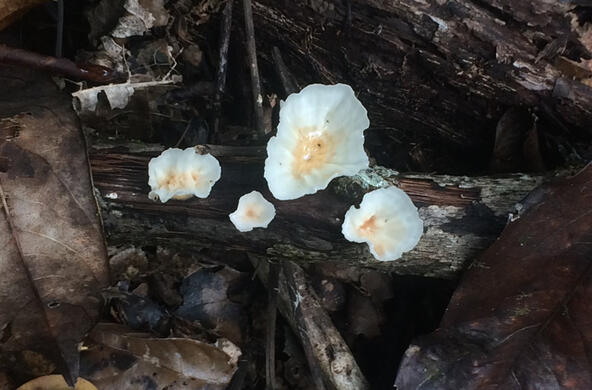Speciation and extinction are ordinary processes in the natural world. The fossil record suggests that most of the species that have ever lived on Earth have gone extinct. About 10 million species of higher organisms now occupy the world. Averaged over long periods, about one species goes extinct each year for every one million species that are present. Thus, at nominal rates, about 10 should go extinct this year. Most, being very small and perhaps still without a name, will disappear quietly without notice.
The species disappearing are presumably balanced by new species evolving to join the Earth’s biodiversity. The evolution of new species is also a natural process, albeit at extremely slow rates. Conservation biologists have been looking for the appearance of a new species for the past 100 years or so, and I have yet to see a report of even one such event.
The long-term average rate of extinction masks periods of mass extinction in Earth’s history. Digging through this record, paleontologists see five major periods of extinction, when lots of species disappeared in a relatively short period of time. One of these about 65 million years ago, took the dinosaurs.
Today, the rate of species loss is about 100 to 1,000 times greater than the long-term historical record. Are we entering another epoch of mass extinction? Are humans to blame? Will we be haunted by the ghost of extinctions past?
Unfortunately the answer to these questions seems to be “yes.” Currently, we are witnessing a major extinction of the Earth’s species at our own hands. Loss of habitat is likely to be the largest cause of species extinction, as we usurp natural land for agriculture, roads, and habitation. Upon habitat conversions, more than 75 percent of local species are usually lost, and the abundance of those remaining is reduced nearly 40 percent.
Introductions of species from far-off lands, which out-compete species at home, are also a major cause of extinction. The native birds of Hawaii are largely extinct in the face of competition from introduced, exotic competitors and avian malaria. We are homogenizing the diversity of the world and in the process losing a considerable amount of its richness.
Armed conflict, hunting and poaching are likely to cause the extinction of some of the remaining big animals in Africa, and projected changes in climate are estimated to drive about one-third of today’s species extinct within a few centuries.
Setting aside the Passenger Pigeon, which humans set upon with unusual vengeance, the most vulnerable species are those with relatively small population sizes and limited range. In the United States, these are species that the Endangered Species Act was designed to save. But rare species are also found throughout the world, where their protection is limited. Bird-watchers and those on safari pay big money to go see them.
There are lots of reasons to preserve species. Some species are of economic value for timber, fisheries, and ecotourism. Others aid human health, provide and protect agricultural crops, and lower damages to human infrastructure. The loss of the wolf as a predator of white-tailed deer in the eastern United States is now associated with the expenditure of $4 billion each year for repairs to automobiles that collide with deer.
Sometimes, we can substitute human ingenuity to perform the function of species, often at considerable incremental cost. Loss of the predators of insects that feed on crops is the basis of a large portion of the $29 billion that is spent on pesticides each year. These pesticides often poison species, including us, that were not intended as targets.
Being a relatively new species to evolve on Earth and possessing putative sapiens skills, humans have a compelling ethos to preserve biodiversity. As Michael Northcott points out, in the correct Hebrew translation of the Bible, God instructs humans not only to have dominion, but to be a steward of the natural world. Certainly, we should not stand by and shrug our shoulders when we hear that humans have endangered a species, which is now likely to go extinct. The world will be a less healthy, less productive, and less interesting place when it is impoverished of nature.
Each year, people are born and people die. That’s natural, but when we cause someone to die, it’s called murder. Murder is unethical.
Each year species appear and species disappear. That’s natural, but when humans eliminate a species, it’s called extinction—the equivalent of murder. Extinction is unethical.
Like it or not, we are keepers of the biosphere, and our judgment day will assess how well we did.
References
Barnosky, A.D. and 11 others. 2011. Has the Earth’s sixth mass extinction already arrived? Nature 471: 51-57.
Keesing, F. and 11 others. 2010. Impacts of biodiversity on the emergence and transmission of infectious diseases. Nature 468: 647-652.
Newbold, T. and 40 others. 2015. Global effects of land use on local terrestrial biodiversity. Nature 520: 45-50.
Northcott, M. 1996 The Environment and Christian Ethics. Cambridge University Press.
Pimm, S.L., G.J. Russell, J.L. Gittleman, and T.M. Brooks. 1995. The future of biodiversity. Science 269: 347-350.
Thomas, C.D. and 18 others. 2004. Extinction risk from climate change. Nature 427: 145-148.







